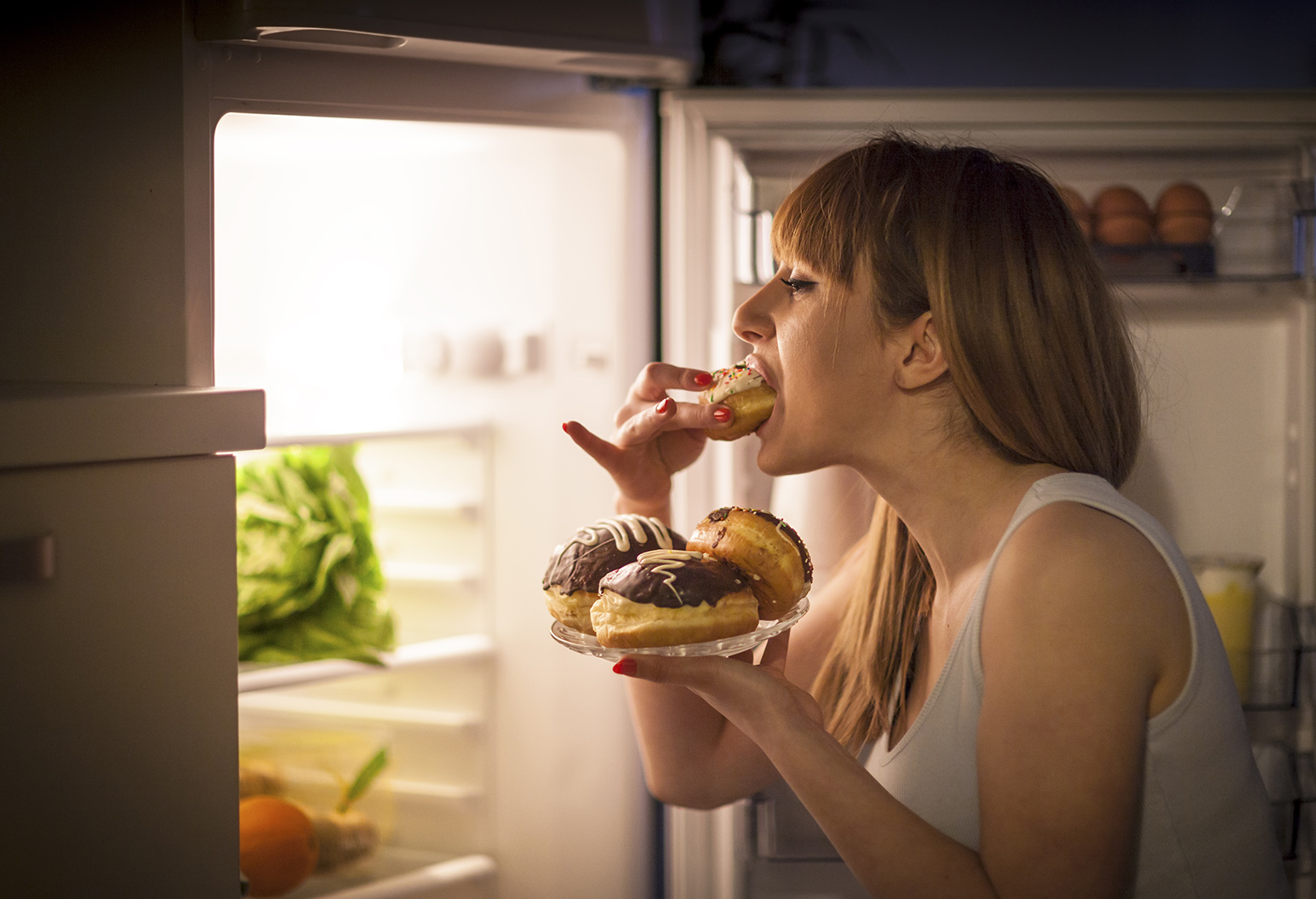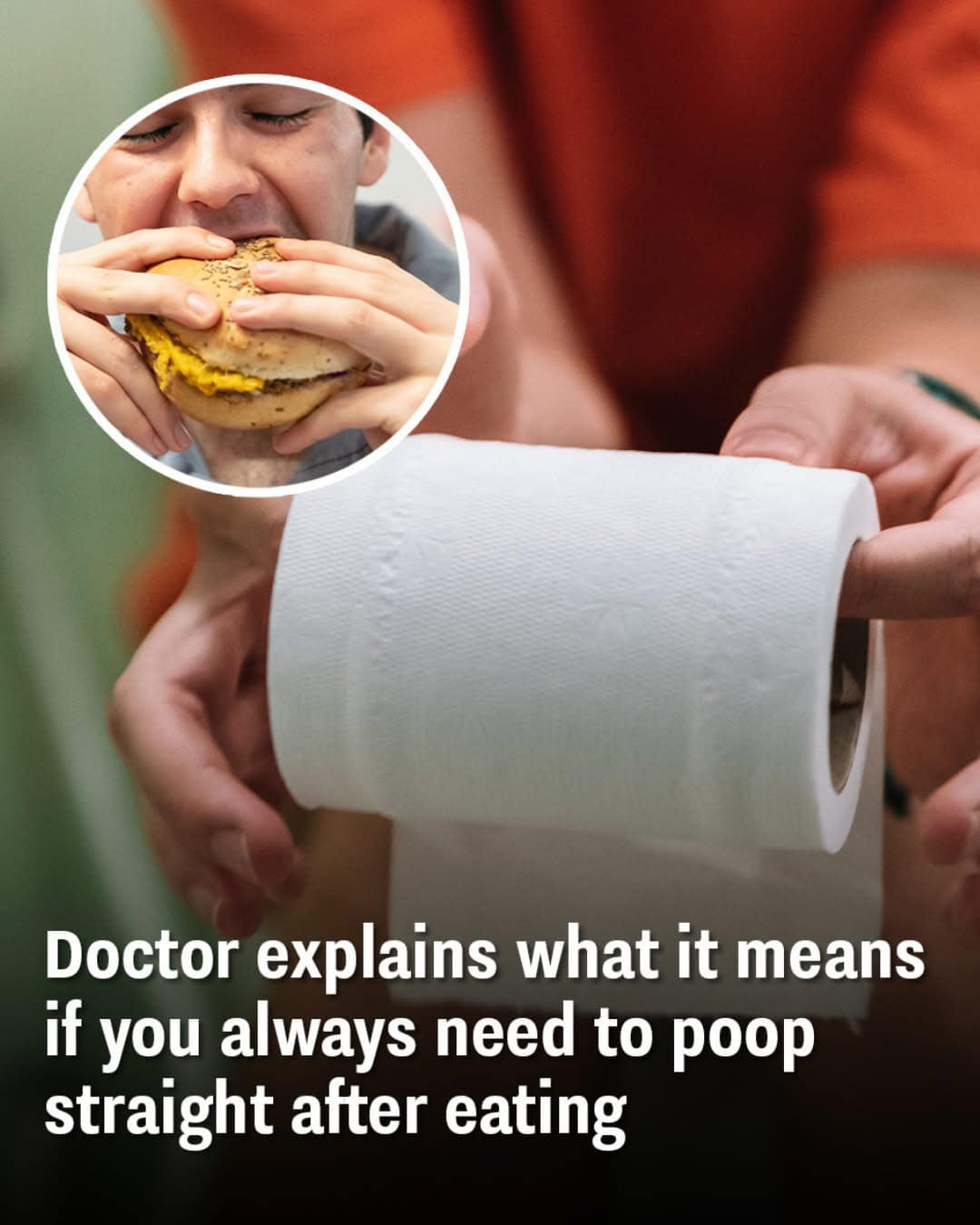VeryWell Health announces: “The gastrocolic reflex is a physiological reflex that stimulates movement in your lower gastrointestinal (GI) tract after eating.
“It isn’t a disease or medical condition, but rather a normal reflex that helps your body make room for more food within your GI tract after eating.”
Dr Salhab breaks it down further, explaining ‘your stomach stretches and then this sends signals to your brain which then sends signals to your colon’.
“Your colon then begins to contract to make more room for the food, that reflex makes you have to use the restroom right after you eat,” he continues. “Because your colon normally houses stool and water, the stuff that’s actually coming out is old digested food and water.”

Heightened reflex
People diagnosed with irritable bowel syndrome (IBS) can have a particularly sensitive gastrocolic reflex.
Cleveland Clinic notes IBS ’causes uncomfortable or painful abdominal symptoms’ and ‘constipation, diarrhea, gas and bloating are all common symptoms of IBS’.
Dr Salhab adds: “Certain people after they eat get really bad abdominal pain or cramping and even diarrhea because the contractions of the colon can be very powerful and very forceful.”
However, there are certain things you can do to help ease your symptoms.

Advice
Dr Salhab also suggests potentially steering clear of ‘carbonated beverages, alcohol, certain citrus foods, sometimes dairy as well and fried or fatty foods’ – so anything that tastes great basically.

